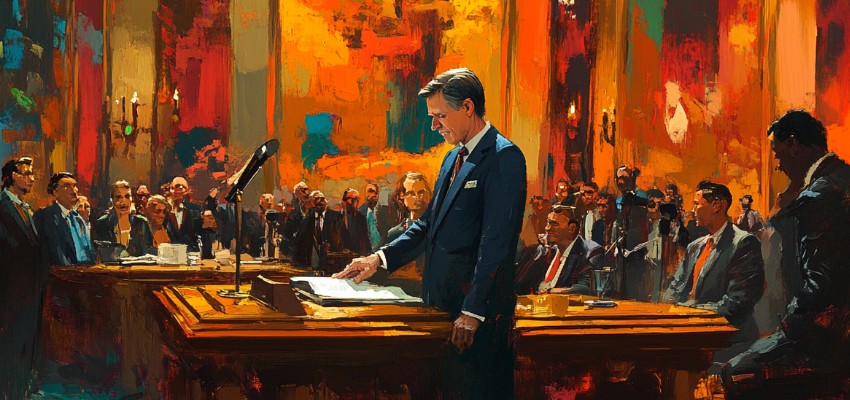In an important move to curb misuse of artificial intelligence (AI), California Governor Gavin Newsom announced the signing of two pivotal AI bills, AB 2602 and AB 1836. These bills aim to protect artists, actors, and performers from illegal digital replication of their likenesses, marking a significant stride in AI regulation. Supported strongly by the Screen Actors Guild – American Federation of Television and Radio Artists (SAG-AFTRA), these laws seek to safeguard the intellectual property and personal rights of entertainers in Hollywood.
AB 2602 and AB 1836 were approved by the California legislature in August, and represent part of a broader effort to reinforce AI legislation in the state. Newsom emphasized the significance of these measures by stating, “Safeguarding the integrity of elections is essential to democracy, and it’s critical that we ensure AI is not deployed to undermine the public’s trust through disinformation – especially in today’s fraught political climate.”
AB 2602 requires Hollywood studios to obtain explicit consent from actors before creating AI-generated replicas of their voice or body. This law ensures that legal or union representation is involved when these digital stand-ins are used, thus preventing the exploitation of artists without their knowledge or approval. Newsom underscored the importance of this law in a video shared on Instagram, in which SAG-AFTRA president Fran Drescher appeared, acknowledging the substantial progress made to protect artists’ rights.
AB 1836 extends these protections to deceased personalities as well, mandating that consent must be obtained from the family or estate before any digital reproductions are made. This closes a potential loophole that previously allowed companies to create and distribute digital replicas without permission. The Hollywood Reporter notes that this legislation represents a crucial shift in AI regulation, offering robust protections against unauthorized use.
The passage of these laws comes amid broader concerns about the potential impacts of AI on various sectors. Newsom’s office highlighted that California hosts “32 of the world’s 50 leading AI companies,” making it imperative for the state to balance innovation with ethical considerations and public welfare. These bills are part of an array of legislative efforts aimed at regulating AI, reflecting a growing consensus on the need for comprehensive oversight.
Furthermore, Newsom has signed other laws addressing the utilization of AI in political contexts. AB 2655 and AB 2355, which require online platforms to label or remove AI-generated deepfakes related to elections, are designed to maintain the integrity of political discourse. A particular focus is on ensuring deceptive AI-generated content does not influence election outcomes. Another measure, A.B. 2839, expands the timeframe during which manipulated content must be regulated, reinforcing the state’s commitment to countering digital disinformation.
Among the newly signed laws, AB 2655 stands out for its requirement that major online platforms like Facebook and X take proactive steps to eliminate or label election-related AI deepfakes. The law empowers political candidates and elected officials to seek legal action if platforms fail to comply. A.B. 2355 complements this by ensuring transparency in AI-generated political advertising, a move aligned with the Federal Communications Commission’s recent regulations against AI-manipulated robocalls.
The introduction of these laws highlights California’s proactive stance in mitigating the risks posed by advanced AI technologies. Newsom’s commitment during a conversation with Salesforce CEO Mark Benioff exemplifies this, as he discussed the balance between addressing the demonstrable risks of AI while fostering an environment conducive to technological advancement. Although Newsom has voiced reservations about the contentious SB 1047, which seeks to establish stringent AI safety standards, the enactment of AB 2602 and AB 1836 indicates a robust regulatory framework taking shape in California.
As the nation anticipates further developments in AI legislation, these laws set a precedent for other states to consider. The protection of entertainers’ digital identities not only secures their intellectual property but also paves the way for ethical standards in AI application across industries. California’s legislative approach thus serves as a model for balancing innovation with regulation, ensuring that advancements in AI do not come at the cost of personal and public welfare.
News Sources
- California Enacts Laws to Combat Election, Media Deepfakes
- California governor signs bills to protect actors from AI exploitation
- California governor signs rules limiting AI actor clones
- California’s 5 new AI laws crack down on election deepfakes and actor clones
- California Passes Two AI Bills That Fight Against Cloning, Deepfakes; Supported by SAG-AFTRA
Assisted by GAI and LLM Technologies
Source: HaystackID




